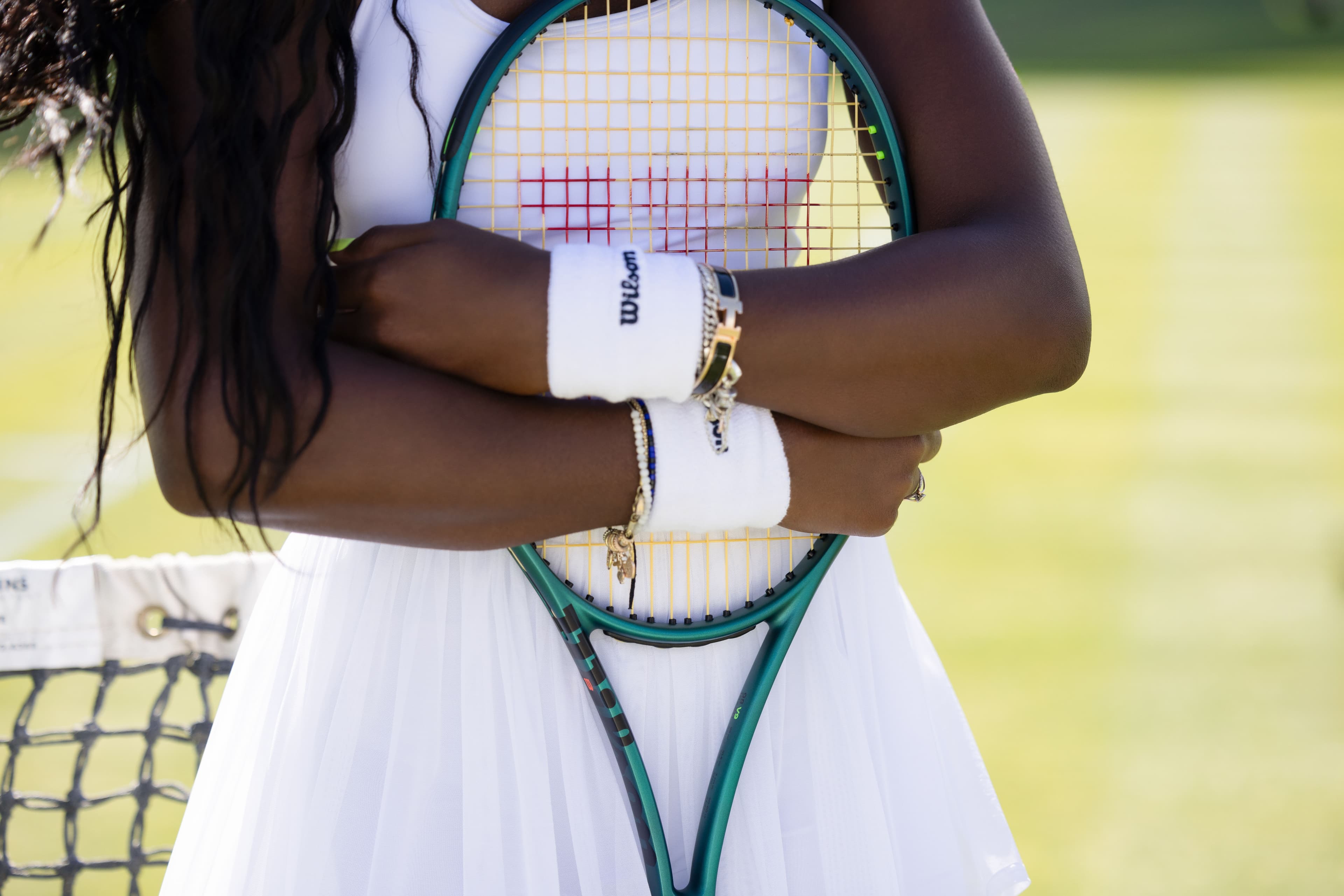Across the tennis world, eco-friendly thinking is gaining popularity. Players are taking a more critical approach to the gear they use, and manufacturers (ourselves included) are stepping up to rethink how that gear is made.
At Luxilon, we’ve spent years pushing the boundaries of string technology. That has always meant asking the bigger questions. What does high performance look like when you factor in the planet? How can we keep innovating without leaving a footprint behind?
This shift toward sustainable string isn’t happening in isolation. We’re seeing it across rackets, apparel, and footwear, too. What excites us most is how much potential there still is to improve and innovate.
Rackets and Materials
Wilson’s limited edition Naked Series used Agiplast, a bio-based plastic made from castor beans, in parts of the frame that would ordinarily rely on petroleum-based components. Paired with a sleek design that cut unnecessary materials, the result was a racket with serious performance credentials and a significantly lighter environmental footprint.
In terms of recycling old rackets, innovators like Fairmat are changing what happens to carbon fiber waste. They recycle discarded carbon composites into durable new materials, some of which are now being used in rackets made for padel. It’s a small shift with big implications: if carbon fiber can be reclaimed at scale, we reduce pressure on raw resources and keep valuable materials in play.
Strings
On our side, string technology is where we’ve been focused. Back in 2023, we launched Luxilon Eco Power, and proved that a tennis string made entirely from recycled materials could still meet professional standards.
These strings are made from 100% post-consumer PET bottles, and the responses continue to show that our innovation made a real impact. Players tell us they got the same grip, tension, and durability as from a high-performance polyester string.
A few things we’re proud of:
- Eco Power is manufactured entirely using solar energy
- The string’s hexagonal shape enhances spin and control
- Packaging is fully recycled and recyclable
We didn’t want Eco Power to feel like a “green option.” We wanted it to be a strong option, no matter what. And that meant designing it to perform under pressure. The fact that some reviewers think it outperforms non-recycled strings in certain conditions is just fuel to keep us going.
Sports Clothes
Beyond rackets and strings, apparel brands are making important progress, too. Players now have the option to buy performance tennis wear made from recycled polyester, sourced from plastic bottles and ocean waste. When processed correctly, these materials can reduce landfill, cut emissions, and conserve natural resources.
Some of what we’re seeing includes:
- Adidas’s sustainable clothes and shoes, made from recycled content
- Fila using high percentages of recycled polyester in their match wear
- Nike incorporating recycled fabrics into core performance pieces
There’s also growing interest in using recycled nylon. Old fishing nets, for example, can now be turned into durable, breathable fabrics. For tennis apparel, which needs to hold up to movement, sweat, and sun, this kind of material reuse makes a real difference.
When the Game Is Over
Sustainability isn’t just about how things are made. It’s also about what happens when their life on court ends. We’ve been inspired by initiatives like GotSneakers, which has created a network for recycling athletic shoes. Given that most tennis shoes are made from complex, non-biodegradable materials, this kind of effort feels essential.
The impact so far:
- Over 3.5 million shoes recycled or reused
- 105 million pounds of CO₂ emissions avoided
- Additional revenue generated for individuals and communities who participate
Making Manufacturing Cleaner
One of the most meaningful decisions we ever made was to install 1600 solar panels on our roof, enabling us to switch our entire string production process over to solar power. Clean energy is central to reducing the carbon impact of our work, and it’s something we hope more of the industry will take on in time.
Looking Ahead
We’re excited by what’s already been achieved, but we’re more motivated by what comes next. For us, the Eco Power project was just the beginning. We're already thinking about future generations of string products that use fewer resources and bring players even closer to the game they love.
This kind of innovation doesn’t happen in a vacuum. It happens when players care, when brands share knowledge, and when industries move together. And that’s exactly what we’re seeing. Collaborations between specialists like Fairmat and big brands like Decathlon show how fast ideas can scale when different parts of the ecosystem work in sync.
As more players start asking where their gear comes from and where it ends up, our job is to keep building answers that feel good on every level.



